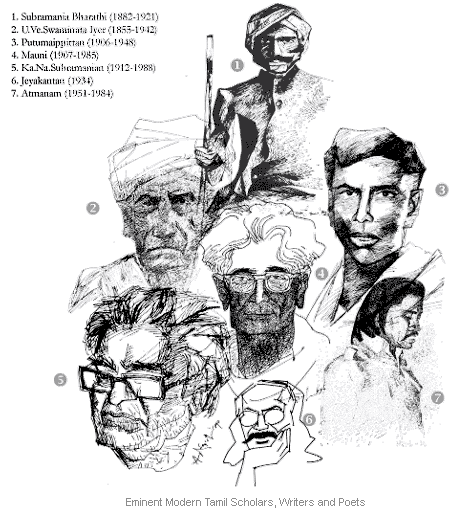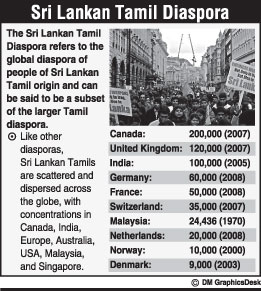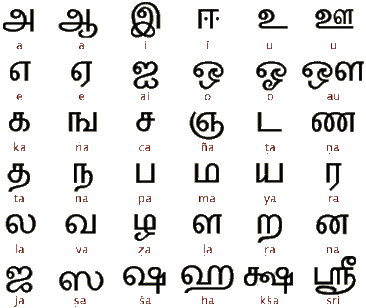January is Tamil Heritage Month. To mark this occasion, TamilCulture Magazine will publish a series of articles on Tamil history and heritage. In today’s article, a guest contributor shares his perspective on the importance of learning Tamil.
There is a stark a division among Tamils in the diaspora. The debate rages over who is more Tamil – is one who speaks the language more Tamil than someone who doesn’t?
Bilingual Tamils argue that knowing and speaking Tamil is important to their identity. They say that they are Canadians and that they are Tamils. They say that deep inside their hearts they are both Canadians and Tamils. Many agree that it is a wonderful thing to be a Canadian and a Tamil at the same time. Says one student, “You can’t be anything if you don’t know who you are. Deep inside your heart, you are a Tamil too. Therefore, it is important to speak Tamil to keep your heart conscious of yourself. Otherwise, you are denying your identity to yourself.”

Some argue that one’s mother tongue – Tamil – is more important than one’s religion. They feel that we lose our identity when we lose our language. They point out that throughout our history, Tamils have been Hindus, Buddhists, Jains, Christians and Muslims, but they always identified as Tamils. Regardless of their religious differences, all Tamils have contributed to Tamil culture and literature.
Knowledge of the language also opens you to a vast amount of work such as literature, music, and drama with which the Tamil language is rich and abundant. Historical works are almost entirely written in the Tamil language. To understand how these (the arts and history) have come to define us as a people and to understand in-depth who we are requires knowledge of Tamil.

Youth who have had to learn English as ESL students have worked twice as hard. Top ranking students from Sri Lanka sometimes fare no better than an average student here because of language barriers. To learn something new, they have had to break the English language barrier before starting the process of acquiring information. Therefore, it is no wonder that they resent the attitude of some students who look down on them because they have difficulty speaking English or have an accent. Is it their fault that some twist of fate gave one student an advantage over the other?
The behaviour of certain students who try to hide their Tamil identity also insults these students and the pain that they have had to witness and bear. Of what meaning is it to pretend that you are not Tamil and above someone because you speak English?
I have put much thought about the situation and talked to many of my friends in Canada and around the world. It appears that this is not a unique problem for Tamil youth in Canada. Tamil youth in the US, UK, Australia and New Zealand have the same kind of divisions among them. The above countries are all English speaking countries.
There are also tens of thousands of Tamils in France, Germany, Switzerland, Norway and other Western European countries. It is interesting to note that Tamils in non-English speaking countries do not have this stark division among themselves. In these countries, almost every Tamil – regardless of how long they have been there – seems to know Tamil. They are forced to learn it to communicate with their parents who have no knowledge of the host country’s language. It is only in the former British colonies and in the UK that our youth seem to have this division.

The reason behind this division, I think, is the unequal distribution of English knowledge among our parents. Since Sri Lanka had been a British colony, speaking English was highly encouraged, valued and considered a matter of pride even in the post-colonial era. Therefore, parents with English knowledge spoke to their kids in English. When Tamils immigrated to countries like Canada, some had a good command of the English language and others did not. People with previous English knowledge had an advantage in Canada, US, UK, Australia and New Zealand while others struggled to learn English. Thus, there is a division among Tamils in English speaking countries.
By contrast in non-English speaking countries, since every Tamil had almost zero knowledge of the host country’s language, everyone started at zero to learn a new language. Therefore, they do not have as great a division among Tamil students.

We Tamils are living in a very crucial period at this time. Never before in our history were we displaced around the world like today. Never before have we wandered around the world as refugees. To object to these injustices we need a strong voice. For a strong voice, we need to stand united. And the one thing that can unite us as a group – cutting across the boundaries of diasporic country, religion and class – is our language.
Therefore, it is critical to learn Tamil, our mother tongue. Tamil is intertwined with our past. It is only by learning Tamil and understanding our past that we can come to terms with our present and realize our future.
– Ragularajan Athirai
Related articles:
How Tamil Are You?
How ‘Ingilish’ Are You?

 Guest Contributor
Guest Contributor









